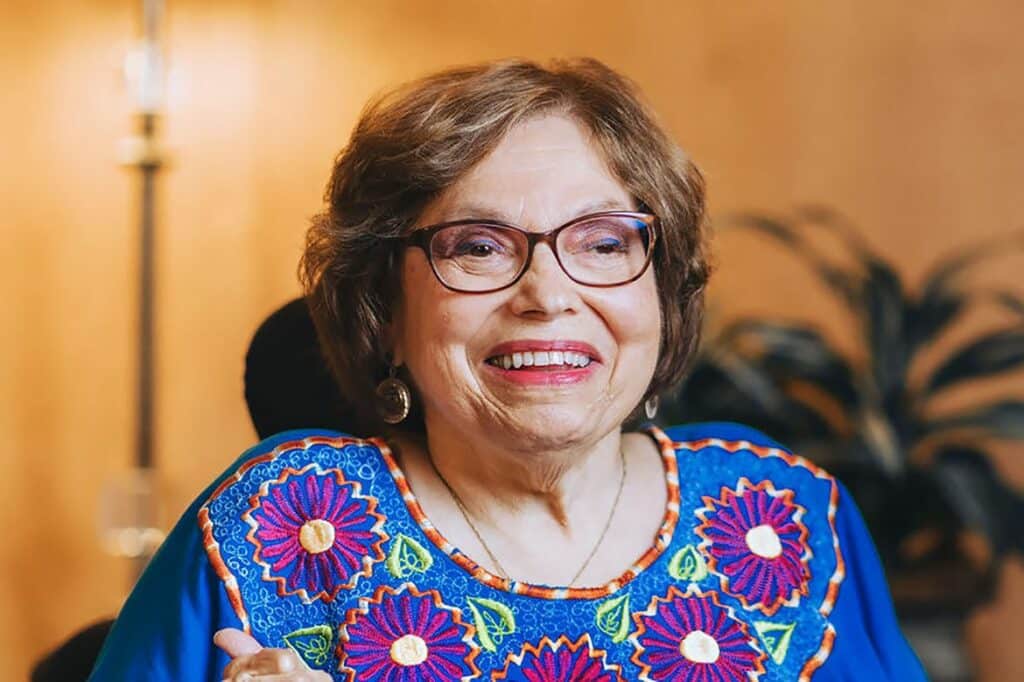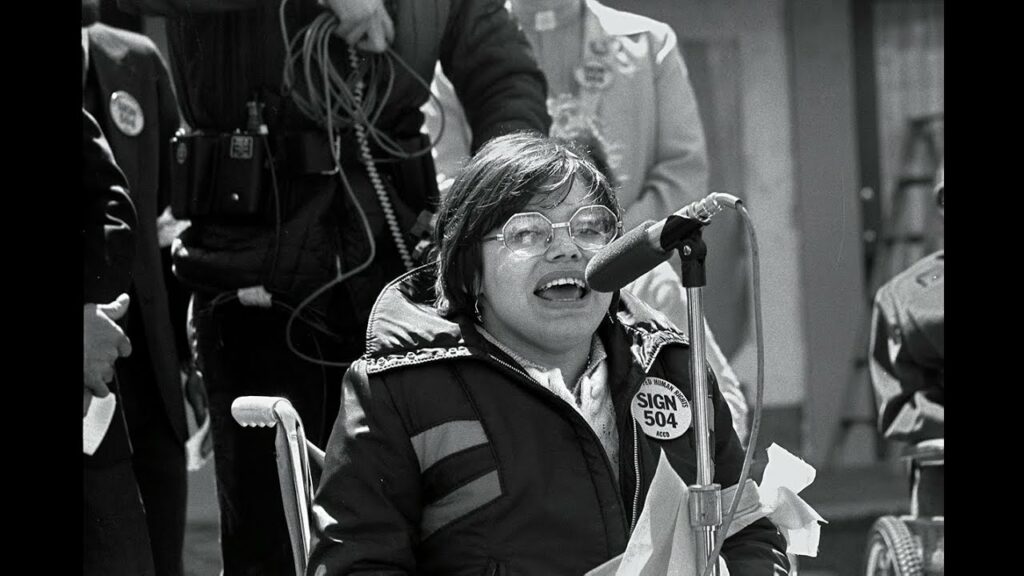Judy Heumann, a well-known activist who helped get laws passed to protect the rights of people with disabilities, died at the age of 75.
Her website and social media accounts announced her death, and her youngest brother, Rick Heumann, confirmed that she died on Saturday in Washington, D.C.
He said she had been in the hospital for a week and had heart problems that may have been caused by something called “post-polio syndrome,” which is related to an infection she had as a child that was so bad that she had to spend several months in an iron lung and lost her ability to walk at age 2.
Her brother said that she spent the rest of her life fighting, first for herself and then for other people.
“It had nothing to do with my sister’s glory or anything like that.” It was always about how she could make other people’s lives better, he said, adding that the family found comfort in the tributes from dignitaries and former presidents like Bill Clinton and Barack Obama that poured in on Twitter.
Heumann’s website says that she has been called the “mother of the Disability Rights Movement” because she has fought for disabled people for a long time through protests and legal action.

She pushed for laws that eventually became the Americans with Disabilities Act, the Individuals with Disabilities Education Act, and the Rehabilitation Act. During the Clinton administration, she was the Assistant Secretary of the U.S. Office of Special Education and Rehabilitation Services from 1993 to 2001.
Heumann was also involved in the United Nations Convention on the Rights of Persons with Disabilities, which was signed in May 2008.
She helped start the Berkley Center for Independent Living, the Independent Living Movement, and the World Institute on Disability. Her website says she also served on the boards of the American Association of People with Disabilities, the Disability Rights Education and Defense Fund, Humanity and Inclusion, and the United States International Council on Disability.
Heumann was born in Philadelphia in 1947 and grew up in New York City. She co-wrote her memoir, “Being Heumann,” as well as “Rolling Warrior,” a version for young adults.
Her book talks about the trouble her German-Jewish parents had trying to get their daughter into school after they left Germany before the Holocaust. “Children with disabilities were seen as a financial and social burden,” she wrote.
Rick Heumann said that his mother, whom he called a “bulldog,” had to teach his sister at home at first. The experience of leaving Nazi Germany with their children made the parents and children very angry.
“We Really Think That Discrimination Is Wrong In Any Way, Shape, Or Form,” he said.
Judy Heumann went on to finish high school, get her bachelor’s degree from Long Island University, and get her master’s degree in public health from the University of California, Berkeley. Maria Town, the president and CEO of the American Association of People with Disabilities, said that the fact that it was groundbreaking at the time shows how much has changed.
“Today, the expectation for children with disabilities is that we will be included in mainstream education and that we will have the chance to go to high school and college and get those degrees,” Town said, while acknowledging that inequalities still exist. “But I think it’s really important that the main assumption has changed, and I also think Judy played a big part.”
She was also in the documentary “Crip Camp: A Disability Revolution,” which came out in 2020. It was about Camp Jened, a summer camp Heumann went to that helped start the disability rights movement. The movie was in the running for an Oscar.

In the 1970s, she sued the New York Board of Education and won. This made her the first teacher in the state who could work while using a wheelchair, which the board had tried to say was a fire hazard.
She was also a leader in the peaceful occupation of a federal building in San Francisco in 1977, which was a historic event and led to the passing of the Americans with Disabilities Act, which became law in 1990.
Town, who has cerebral palsy, said that Heumann was the one who suggested she use a mobility scooter to make it easier to get around. After being told her whole life that she needed to look less disabled, she wasn’t ready to hear it at first. She finally decided to give it a try, though.
“It’s changed my life in every way,” Town said. “That’s part of what Judy did, too. She really helped disabled people accept who they were and be proud of that fact. And she helped so many disabled people realise their own power.”
Read More
- “Lucky Hank” With Bob Odenkirk Welcomes Lilah Fitzgerald To The Cast
- Sylvia Syms, Star of ‘Ice Cold in Alex’ and ‘Victim,’ Passes Away at 89
Be Entertained and informed with the latest news at techeducation.com! From the hottest trends to the most breaking news. And Also, Follow us on social media: Facebook, Pinterest, Twitter, and Linkedin. And be part of the movement! Share your thoughts, ideas, and opinions with us.

